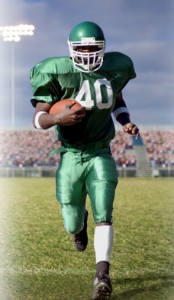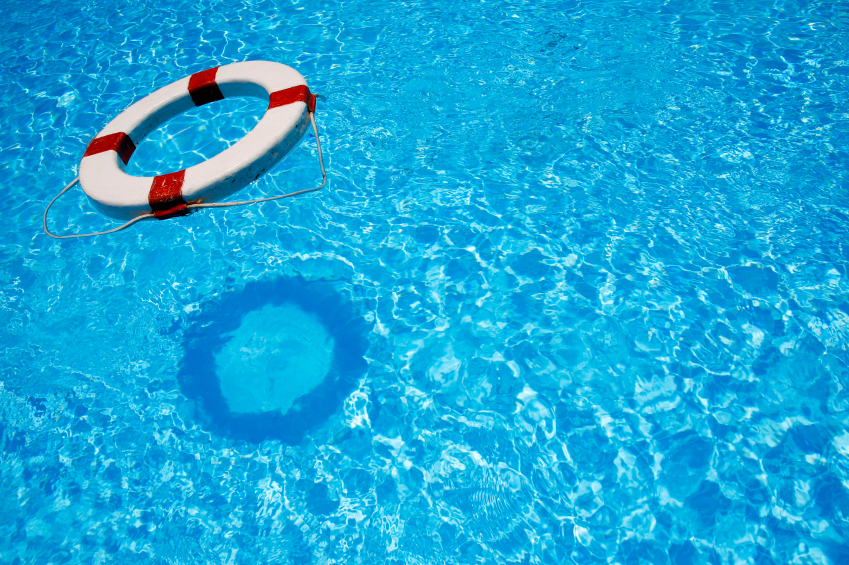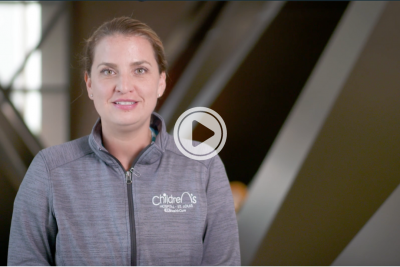Can I? Will I? Let my child learn to play one of our nation’s most treasured past-times?
Please don’t think I am un-American or anti-football as you read this. I am not, but I am very pro-kid, pro-brain, and especially pro-my-kid’s-brain.
My son is only two, but this issue has been racing around my head for longer than that.
Football Injuries
A few years ago, after treating many football players for various injuries, I found myself standing over the face of a very scared 17-year-old with a cast saw in my hand. I’d like to tell you this was some kind of Halloween gag. It was not. This young man was playing in his high school playoffs and had taken a bad hit. He was paralyzed. I was given the job of cutting his helmet from his head while another physician held his neck still.
That night, I appreciated the fact that I was walking out of the hospital and wondered if I would ever be able to let my own child walk out onto that field knowing he may not walk off. I still don’t have an answer, but here are some things I do know.
That type of spine injury is rare. Broken bones heal. However, concussions, aren’t rare and they don’t heal that well. We each get one brain, only one. Every brain is fragile, but young brains, which are still changing and growing, are even more fragile. This is one of the few injuries where youth is not on your side.
Your Brain
A brain is a high-functioning complex living supercomputer and like your smartphone, they don’t like to be dropped. Maybe the first few times you get lucky and don’t notice much, but then one day, it is just so slow, or you can’t make a call, or check e-mail, or even turn it on.
Effects of Concussions
Concussions are like this. The more you have, the worse they are. Most kids will recover pretty well after some period of time, which may be days to months (yes months). They may suffer from headaches, dizziness, nausea, confusion, fatigue, vision changes, difficulty with sleep, changes in personality, mood swings, difficulty with concentration and falling grades. You don’t have to be “knocked out” to have a concussion. Kids who are still recovering and get reinjured are at even greater risk for permanent damage. Kids who have multiple concussions will have measurable changes on cognitive (intelligence) testing. How hard a hit and how many it takes for this to happen vary by person and situation.
The Facts
1) Concussions are serious and common and will cause permanent damage over time. Football is a major contributor for recurrent concussions because of the way the game is often played, but concussions also occur in soccer, gymnastics, horse-related sports, basketball, cheerleading, lacrosse and many others.
2) Parents, coaches, trainers, and the general public need to understand the risk we are asking and allowing our kids to take.
3) Younger players have greater risk and less personal understanding of that risk.
4) There is no place for a “tough it out/shake it off/get back in the game” attitude with brain injury.
5) Players need significant time to heal prior to returning to play and physicians knowledgeable about concussions should be involved in that decision and in the recovery care of these children.
I don’t know what my final decision will be on this issue. I have several years before I will have to decide. There are no easy answers for kids and families who love the game. Though participation in organized sports is extremely beneficial for our children, we need to make sure they stay as safe as possible while doing so.






Comments